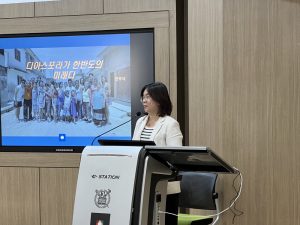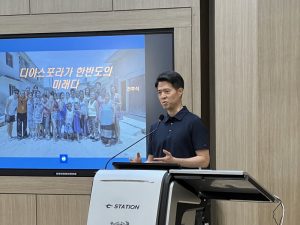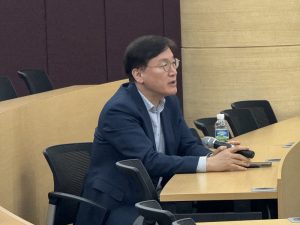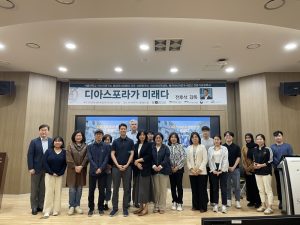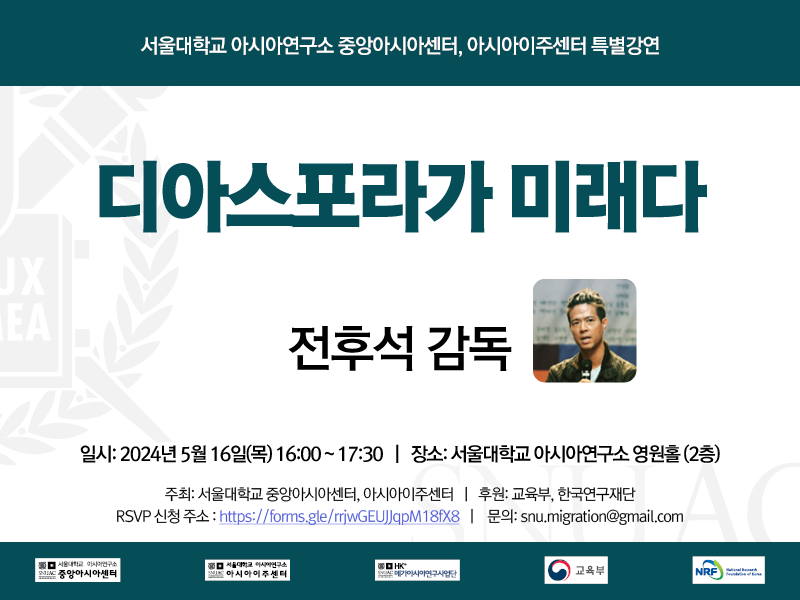
Diaspora is the Future
- Date: May 16th, Thursday, 2024, 16:00 – 17:30
- Location: Youngone Hall (Room 220), SNUAC (Bldg. 101)
Presenter: Joseph Juhn (Film Director)
In this lecture, we contemplate the notion of ‘diasporic thought.’ As filmmaker born in the United States and raised in Korea, upon returning to the U.S. during adolescence, found himself pondering what ‘Korean identity’ truly meant. It was during this time that he encountered overseas Korean friends living across the globe, each forming their own unique communal and personal identities, thereby expanding the scope of ‘Korean identity.’ While working in New York, the director traveled to Cuba in 2015, where he coincidentally encountered Cuban Koreans and discovered the significance of the diasporic identity they symbolized, feeling a pressing need for more ‘diasporic narratives.’ Through diasporic narratives, he finds a thread connecting the multiculturalism, diversity, immigration, refugees, and marginalized neighbors that the Korean Peninsula grapples with today. The potential for overseas communities, the existence of the diaspora, and the future of the Korean Peninsula lie in their inherent ways of peaceful coexistence and embracing differences in life.
On May 16th, the Central Asia Center’s Migration and Refugee Research Group, the Asia Migration Center, and the HK+ Mega Asia Research Project at Seoul National University Asia Center invited filmmaker Joseph Juhn for an expert lecture titled “Diaspora is the Future.” Based on the author’s experiences with his Korean diaspora identity, the lecture explored the identity of the diaspora and its relationship with the homeland. Additionally, it delved into the concept of ‘diasporic thinking’ and sought to find clues to address current issues in Korea such as multiculturalism, diversity, immigrants, refugees, and marginalized neighbors through the narrative of the diaspora.
The event began with an introduction of the director by Dr. Ayoung Choi of SNUAC. Joseph Juhn, a Korean-American filmmaker and lawyer, has directed films such as Jeronimo (2019) and Chosen (2022), and published the book Your Modifier (2024).
The lecture started with references to scenes from the film Jeronimo. Juhn explained that the term “diaspora” stimulates the imagination more than terms like expatriates or immigrants, allowing for a broader understanding of all migrants, not just Koreans. Jeronimo was created for all who seek to understand this concept. Through Professor Valerie Han’s question, “Will our diaspora eventually disappear?” Juhn explored the meaning of the diaspora narrative fading and its value if it should be preserved. The concept of diaspora helps find commonalities in culture, language, and values, providing significant value in identifying these commonalities. It also conveys respect for nations or cultures at risk of disappearing. This respect and empathy are universal and vital values.
Juhn traced his identity journey from being Korean to Korean-American, to a member of the Korean diaspora, and ultimately to a global citizen. He discussed how Korea’s emphasis on a homogeneous ethnic identity and pure bloodline lacks racial sensitivity due to cultural, racial, and linguistic homogeneity. Juhn confessed that he never contemplated his identity as a Korean while living in Korea until he chose American citizenship and migrated, which led to an environment where his legitimacy could be questioned, sparking identity reflections.
Diaspora narratives are formed through historical or personal events. The identity of “Korean American” emerged among Korean immigrants in response to the 1992 LA riots, where Korean businesses were targeted, revealing the need for unity and political representation among Korean Americans. Juhn personally connected with the journalist Kyung-Eon Kim’s speech about the event, which he incorporated into his film Chosen.
Juhn encountered various forms of the Korean diaspora worldwide. Friends he met at Yanbian University of Science and Technology described themselves as neither completely apple nor pear, but apple-pear, representing their mixed identity. He found similar expressions among North Korean defectors, Korean Germans, Korean Brazilians, and Korean South Africans. These experiences helped him form his identity as a Korean diaspora.
This exploration of minority identity extended beyond nationalism to humanism and global citizenship. Juhn recognized the need to understand the diaspora identity of others, especially in light of the Yemeni refugee protests in Korea. He quoted Professor Jin-Seok Choi, who expands the concept of the diaspora to a philosophical and existential realm, emphasizing the value of living and thinking as a minority even when positioned as a majority.
During the Q&A session, Juhn elaborated on the differences between the diasporic concepts in Jeronimo and Chosen. He stated that while the former focuses on the abstract existence of diaspora, the latter addresses more practical political areas. He also discussed how diasporic thinking can contribute to peaceful reunification on the Korean Peninsula and the importance of understanding and respecting diverse identities.
Professor Beomshik Shin highlighted the significance of the diaspora identity journey as a special yet universal experience. Juhn agreed, emphasizing the need for understanding conflicts and connections among people with diverse identities. The lecture concluded with a focus on the importance of respect and understanding for each individual’s identity.

